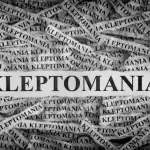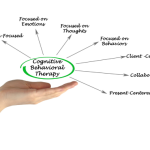The subject of economics was considered a part of philosophy until the Industrial Revolution. When the shift from agriculture to industry became pronounced, the study of economics gained importance. The three books below were major influences in economic theory.
1. An Inquiry into the Nature and Causes of the Wealth of Nations by Adam Smith On this book rests the foundation of classical economics. Among the first of its time, and certainly the most influential, five editions of this seminal work were published since its first printing in 1776.
2. Das Kapital (Capital:A Critical Analysis of Capitalist Production) by Karl Marx The labour movements of the late 19th century onwards owe their existence to this monumental work. Marx critiqued the theories of Adam Smith, David Ricardo and John Stuart Mill. He argued that the capitalist system tends towards self- destruction. His work centres on the theory of the surplus value of labour. The fundamentals of communism were built on these principles. The second and third volumes of this work were published by his collaborator Engels, after his death.
3. The General Theory of Employment, Interest and Money by John Maynard Keynes In 1936, after the social and economic upheavals of World War I, the Depression and the rise of Communism, Keynes published a book, which he hoped would cause an economic revolution. He challenged the classical theories and introduced new concepts such as consumption function, multiplier and liquidity preference. He advocated government intervention to kick-start the economy when disturbances occurred to upset the equilibrium. He is considered the father of macro economics.
After World War II, many geo-political changes took place. More and more societies became industrialised, and economics had to widen its scope. Here is a selection of books representing the wide variety of economic thought.
1. Economics in One Lesson: The Shortest and Surest Way to Understand Basic Economics by Henry Hazlitt This book was written in 1946, and went on to become a best seller. The author holds that economists must look at the possible long term effects of any economic policy. Furthermore, the consequences of policy on all groups of people must be considered.
2. The Affluent Society by John Kenneth Galbraith The author was a Keynesian economist and propounded democratic socialism. In this book, he questions the patterns of consumption in affluent societies, pointing out that advertising and marketing determine our purchases more than needs. He deplores the practice of meagre expenditure on public welfare, while ignoring wasteful expense in the private sector.
3. Small is Beautiful: Economics as if People Mattered by Ernst F Schumacher An ethical and people centric approach to economics was this economist’s answer to the traditional statistical models. He pointed out that these models do not assess quality of life, environmental damage and social impact. He warned that materialism did not have a limiting principle, whereas resources in the environment are limited.
4. Freakonomics: A Rogue Economist Explores the Hidden Side of Everything by Steven D. Levitt and Stephen J. Dubner Levitt is an economist extraordinaire and Dubner, an award winning author. Together, they put together an amazing and often amusing account of the incentives that drive human behaviour, using the analytic tools of microeconomics.
5. The Undercover Economist by Tim Harford This is an introduction to the principles of economics. It also explains in simple terms how products are priced, why poor countries stay poor and why China has achieved economic success. It dispels many myths while uncovering the true motivation for some economic practices.
6. Development as Freedom by Amartya Sen The author won the Nobel Prize for Economics in 1998. This book was published the next year. Sen points out that economic development must provide political freedom, freedom of opportunity and freedom from poverty through relief measures.
7. Making Globalization Work by Joseph Stiglitz This author was also the recipient of the Nobel Prize. He argues that globalization favours rich countries, and is not concerned with environmental damage.
8. Peddling Prosperity by Paul Krugman This book examines the slow down of productivity in USA from the 1970s.He criticises the inability of economists to put forth their theories convincingly. This gives rise to‘ policy entrepreneurs’ whose policies are economically unsound.
9. Nudge: Improving Decisions about Health, Wealth and Happiness by Richard Thaler and Cass Sunstein The authors have coined the term ‘libertarian paternalism’ to promote their ideas. It is possible for institutions to influence sound economic choices while respecting the freedom of the individual.
10. Capital in the Twenty First Century by Thomas Piketty This author has examined a vast amount of data from the 18th century onwards, to arrive at an understanding of inequality of wealth and income in Europe and USA.








Leave a Reply